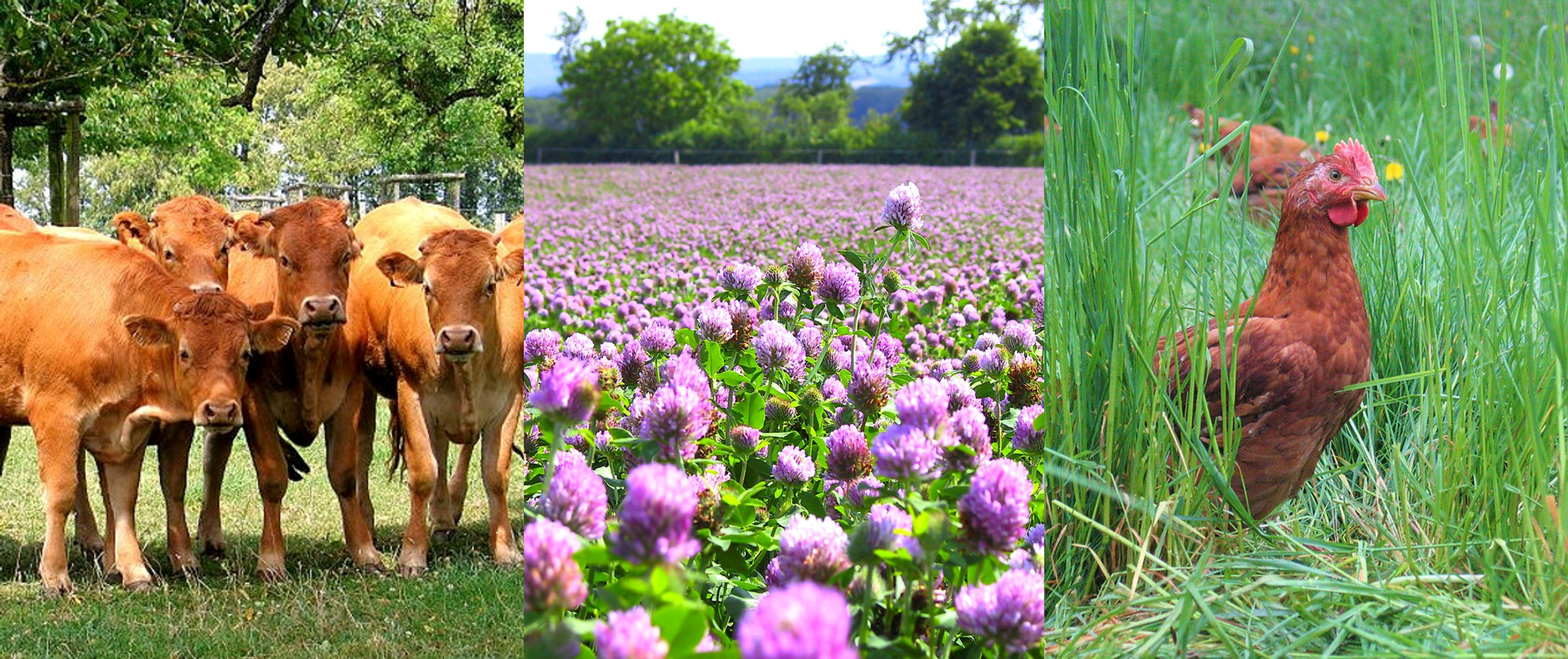Farm Management
-

Jean-Louis Colling
-

Alice von Roesgen
-

Greg Colling
In 2000, we took over Alice’s parents’ family farm.
Jean-Louis, who previously worked as a department manager in a Luxembourg bank, decided at the age of 40 to make a career change and enter the world of farming with his family. We chose to pursue a form of agriculture that is more respectful of the environment and began our transition to organic farming as early as 2001 — sustainability has always been a core value for us.
Over the years, we have always strived to maintain direct contact with our customers, as it is important for us to provide society with healthy food while remaining independent from large corporations.
For many years, we have actively supported research in the field of organic farming. With this in mind, we collaborate closely with IBLA (the Luxembourg Institute for Organic Agriculture).
In 2020, our son Greg joined the farm.
With several years of experience as a social educator, he now brings a fresh perspective and new ideas for the future of our family business.
Animals and Fields

Organic chicken
Our chickens enjoy daily free access to a large pasture of nearly 4 hectares, where they can roam freely.
We have chosen a slow-growing breed to ensure flavorful, high-quality meat.
Their lifespan is about three times longer than that of industrially farmed chickens, allowing them to grow at their natural pace.
We strictly avoid the preventive use of antibiotics and never use genetically modified breeds.
Organic Limousin
Our herd fully enjoys life on pasture from spring until late autumn.
In winter, when conditions turn cold and wet, the animals stay in our spacious, open-front barn — well-bedded and comfortable.
There, they are fed hay, alfalfa, clover, and a muesli mix made from grains grown directly on our farm.
We place great importance on caring for each animal throughout its entire life — from birth to slaughter.
This complete oversight allows us to manage everything ourselves, ensuring the quality of our meat and controlling every step of the process.
After slaughter, the meat is cut on the farm according to our customers’ preferences or specific orders.
Nothing is wasted: every part of the animal is used and packaged accordingly. For us, respect for food and sustainability are not just values — they are the foundation of our work.
Our fields
Our soils are our most precious tools.
That’s why it’s essential for us to cultivate our land in a way that preserves its fertility for future generations.
Thanks to regular and thoughtful crop rotation, we maintain a high level of humus in our fields. This not only promotes the growth of many plants but also provides a natural habitat for insects — thereby supporting biodiversity. As shown in this photo, it also contributes to the beauty of the surrounding landscape.
We use legumes such as alfalfa, clover, or peas to enrich our soils with nitrogen. These plants have the ability to capture nitrogen from the air and fix it in the soil, benefiting the crops that follow.
This way, we can avoid chemical fertilizers, whose production consumes a large amount of fossil energy, and reduce our environmental impact.
Our partners
Thanks to our partners listed below, we are now able to best adapt our farm to market conditions, environmental factors, and policy changes.






